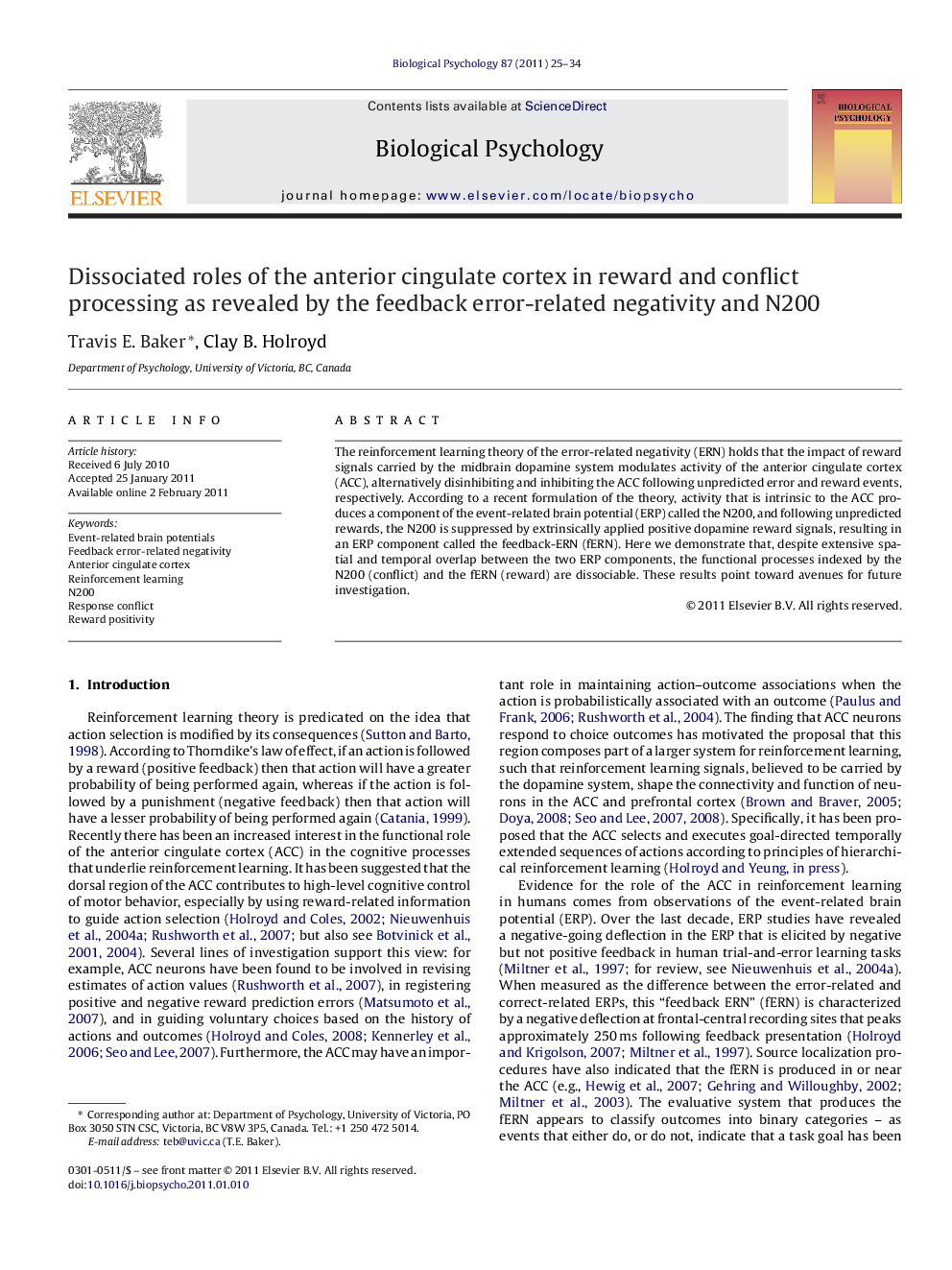| Article ID | Journal | Published Year | Pages | File Type |
|---|---|---|---|---|
| 921181 | Biological Psychology | 2011 | 10 Pages |
The reinforcement learning theory of the error-related negativity (ERN) holds that the impact of reward signals carried by the midbrain dopamine system modulates activity of the anterior cingulate cortex (ACC), alternatively disinhibiting and inhibiting the ACC following unpredicted error and reward events, respectively. According to a recent formulation of the theory, activity that is intrinsic to the ACC produces a component of the event-related brain potential (ERP) called the N200, and following unpredicted rewards, the N200 is suppressed by extrinsically applied positive dopamine reward signals, resulting in an ERP component called the feedback-ERN (fERN). Here we demonstrate that, despite extensive spatial and temporal overlap between the two ERP components, the functional processes indexed by the N200 (conflict) and the fERN (reward) are dissociable. These results point toward avenues for future investigation.
Research highlights► The difference in fERN amplitude between reward and error trials results from a positive-going deflection, the reward positivity (Rew-P), elicited by reward feedback. ► Complexity of feedback stimulus can in fact delay the onset of the Rew-P, thereby exposing the N200 on both Reward and No-Reward trials. ► Manipulating the degree of stimulus conflict can affect N200 amplitude independently of fERN amplitude. ► The functional processes indexed by the N200 (conflict) and the fERN (reward) are dissociable.
